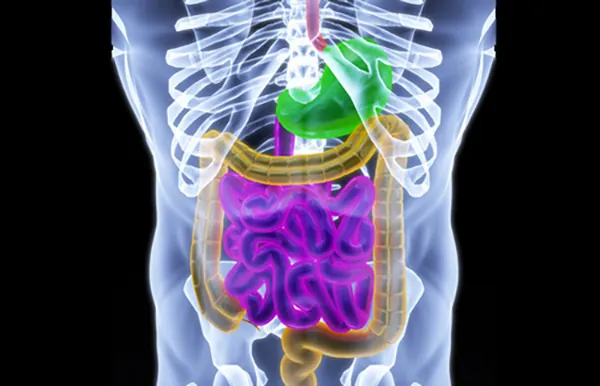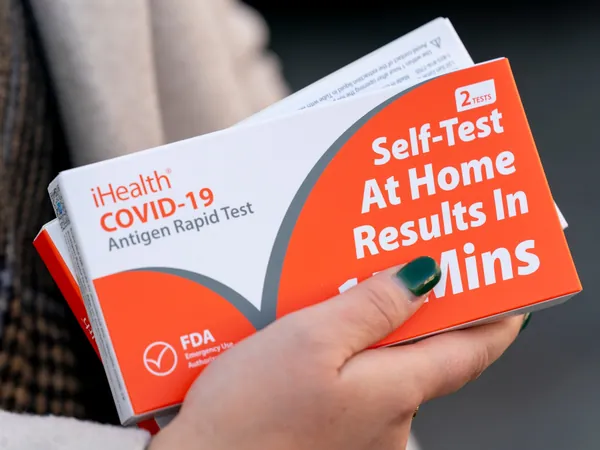
Breaking Discovery: Two Unique Molecular Subtypes of Crohn’s Disease Could Revolutionize Personalized Treatment!
2024-09-27
Breaking Discovery: Two Unique Molecular Subtypes of Crohn’s Disease Could Revolutionize Personalized Treatment!
In a groundbreaking study, scientists have unveiled two distinct molecular subtypes of Crohn's disease (CD), a complex autoimmune disorder that has long plagued both patients and researchers alike. The lack of effective preclinical animal models and the vast heterogeneity among patients have complicated efforts to develop tailored therapies, but recent research from the University of California, San Diego (UCSD) has provided new hope.
For years, organoids derived from pluripotent stem cells have been used to study Crohn’s disease. However, UCSD researchers have taken a giant leap forward by creating a living biobank of organoids derived from adult stem cells extracted from the gut tissue of CD patients. Their findings indicate that Crohn's disease manifests as two unique molecular subtypes, an essential discovery that could lead to more accurate diagnostics and personalized treatment regimens.
“We aim to change the perception of Crohn's disease from a one-size-fits-all model to one that recognizes the two distinct molecular subtypes, each requiring different treatment approaches,” stated Dr. Pradipta Ghosh, lead researcher and Professor of Cellular and Molecular Medicine at UCSD.
Published in *Cell Reports Medicine*, the team's paper, titled “A Living Organoid Biobank of Patients with Crohn's Disease Reveals Molecular Subtypes for Personalized Therapeutics," outlines that the newly identified patient-derived organoids pave the way for personalized therapy, potentially alleviating the current reliance on broad-spectrum anti-inflammatory drugs that often yield temporary relief at best.
Crohn’s disease affects over 500,000 individuals in the U.S. and is characterized by chronic inflammation of the digestive tract, leading to debilitating symptoms that vary widely among patients. Complications can cause significant damage to the gut lining, sometimes necessitating multiple surgeries. With no cure currently available, the need for a deeper understanding of the disease is more pressing than ever.
The researchers utilized gut tissue samples from 53 diverse CD patients to develop a biobank of organoid cultures, which accurately reflect the disease's characteristics. Remarkably, despite the patients’ varied clinical presentations, the organoids consistently fell into one of two categories: immune-deficient infectious-Crohn’s disease (IDICD) and stress and senescence-induced fibrostenotic-Crohn's disease (S2FCD).
The **IDICD subtype** is marked by an impaired ability to clear pathogens and an inadequate cytokine response—a sign that these patients could benefit more from therapies targeting their bacterial infections. Conversely, the **S2FCD subtype** is associated with cellular aging and stress, suggesting that treatments aimed at rejuvenating gut tissues may be more appropriate for this group.
The implications of this research are enormous. By enabling the testing of various drugs on these organoids, it opens the door to identifying the most effective treatments tailored to each molecular subtype. "We are moving toward a future where Crohn’s disease could be managed with personalized therapies, encompassing everything from gene editing to RNA-based treatments,” Ghosh emphasized.
As the researchers work on genotyping these subtypes, the potential for a simple diagnostic test is on the horizon. This could lead to categorizing patients swiftly and consistently, ushering in an era of more targeted treatments and better outcomes.
"This isn’t just about treating symptoms anymore—it’s about identifying the root cause of the disease. We’re aiming to target the underlying mechanisms and not just apply temporary fixes,” Dr. Ghosh concluded.
Overall, this pivotal study offers promising avenues for future research and sheds light on a condition that has long been misunderstood. With personalized medicine at the forefront, Crohn’s disease patients may soon have access to therapies that truly fit their individual needs, transforming the landscape of treatment for this challenging disorder. Stay tuned for more updates on this developing story!



 Brasil (PT)
Brasil (PT)
 Canada (EN)
Canada (EN)
 Chile (ES)
Chile (ES)
 España (ES)
España (ES)
 France (FR)
France (FR)
 Hong Kong (EN)
Hong Kong (EN)
 Italia (IT)
Italia (IT)
 日本 (JA)
日本 (JA)
 Magyarország (HU)
Magyarország (HU)
 Norge (NO)
Norge (NO)
 Polska (PL)
Polska (PL)
 Schweiz (DE)
Schweiz (DE)
 Singapore (EN)
Singapore (EN)
 Sverige (SV)
Sverige (SV)
 Suomi (FI)
Suomi (FI)
 Türkiye (TR)
Türkiye (TR)